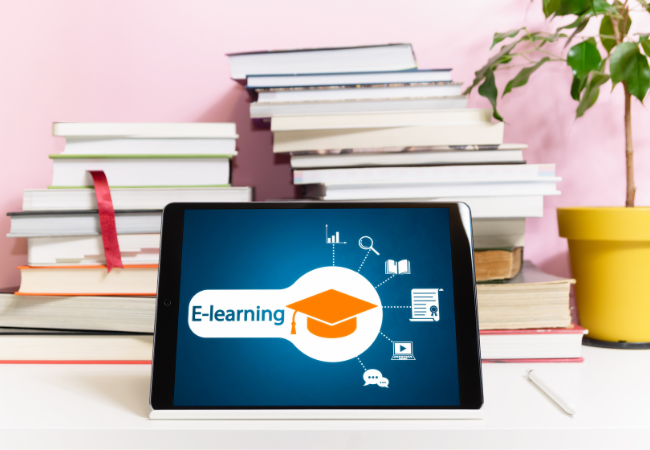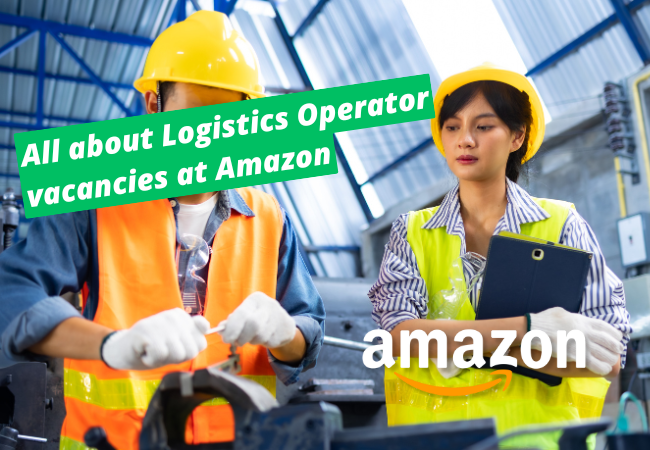In recent years, major employers like Amazon, Walmart, and Starbucks have announced education assistance programs aimed at making postsecondary education more affordable for their working adult employees. These initiatives offer unique examples of how employer-provided education benefits can potentially increase educational attainment, particularly among underrepresented populations like Black, Hispanic, and low-income workers who are heavily represented in entry-level jobs at these companies. However, a closer examination of the program designs reveals that these corporate education assistance initiatives may not meaningfully relieve financial constraints for employees seeking college degrees and can actually limit their college and career choices in some cases.
Vacantes disponibles en tu región
Key Takeaways
- Amazon’s Career Choice program covers up to $3,000 per year for full-time employees and $1,500 per year for part-time employees, reimbursing 95% of tuition and fees after financial aid.
- Walmart’s education assistance program covers all education costs minus an employee contribution of $1 per day, but is limited to associate’s or bachelor’s degrees in business administration or supply chain management.
- Starbucks provides a 45% discount off tuition and fees for its employees under the College Achievement Plan, with tuition reimbursement at the end of each semester.
- Employer-provided education benefits are typically capped at $5,250 per year per employee, though there are efforts to increase this tax-free contribution limit.
- Amazon has estimated investing $1.2 billion by 2025 in its tuition benefit and other upskilling programs, which have already provided additional education for over 50,000 employees.
Amazon’s Career Choice Program
Amazon’s Career Choice program is a remarkable initiative that empowers the company’s employees to pursue their professional aspirations. Launched in 2012, this innovative program has already assisted over 150,000 Amazon workers in 14 countries to advance their careers through education and training.
Eligibility and Benefits
To participate in the Amazon Career Choice program, employees need to have worked at the company for at least 90 days. The program offers a generous tuition assistance benefit, covering up to $5,250 per year for full-time associates and up to $2,625 for part-time associates. This covers 100% of tuition and fees, a significant improvement from the previous plan, which capped the benefit at 95% of costs up to $3,000 annually.

- The updated program has no lifetime maximum, allowing employees to access the benefits for as long as they need.
- Eligible courses include a wide range of high-demand fields, such as IT, nursing, trucking, electrical engineering, and web development, among others.
- Amazon also offers flexibility in work schedules to accommodate the training demands of its employees, demonstrating its commitment to their professional growth.
The Amazon Career Choice program is a shining example of how companies can empower their workforce and support their career aspirations. By providing access to vocational certificates, associate’s degrees, and online education, Amazon is investing in the long-term success of its employees and the communities they serve.
Walmart’s Education Assistance Program
In 2018, Walmart revamped its education assistance program, now covering the full tuition and fees for its employees after financial aid, with employees contributing just $1 per day. Walmart partnered with University of Florida Online, Brandman University, and Bellevue University through Guild Education to offer these benefits, but they are limited to bachelor’s or associate’s degrees in business administration or supply chain management.
To be eligible, employees must work at Walmart for at least three months. The benefits do not vary based on full-time or part-time status. Walmart’s educational partners include Johnson & Wales University, The University of Arizona, The University of Denver, Purdue University Global, and others.
- Walmart covers 100% of tuition and textbook costs for its employees.
- Walmart does not cover master’s degree fees but may offer discounts for certain master’s programs.
- Employees who already have a bachelor’s degree do not qualify for LiveBetterU, Walmart’s education assistance program.
Walmart is investing nearly $1 billion over the next five years in its tuition assistance program for employees. More than 52,000 Walmart associates have taken advantage of the Live Better U program since 2018, with around 8,000 earning degrees.
Walmart’s education assistance program, LiveBetterU, offers its employees the opportunity to pursue bachelor’s or associate’s degrees in business administration or supply chain management at no cost, with the company covering 100% of tuition and textbook expenses.
Free Professional Qualification Courses Offered by Amazon and Walmart
In addition to their tuition assistance programs, Amazon and Walmart are leading the way in providing free professional qualification courses and apprenticeships to help their employees develop in-demand skills and transition into new roles. These initiatives are designed to support career growth and open up opportunities for both current staff and entry-level candidates from nontraditional backgrounds.
Amazon’s expansive Career Choice program offers hands-on training and job placement assistance in areas like robotics, mechatronics, software engineering, and user experience design. With over 750,000 eligible hourly employees, including part-time workers, the program has already seen around 50,000 participants since its launch in 2012. Amazon is committed to investing $1.2 billion by 2025 to further expand these educational benefits and skills training initiatives.
Walmart also provides comprehensive on-the-job training and certification programs for roles such as data center technicians and operations technicians. These offerings target both current employees and entry-level candidates, providing a pathway for individuals from nontraditional backgrounds to develop valuable, in-demand skills.
“Companies offering free tuition programs typically cap benefits at around $5,250 a year, in accordance with tax rules allowing for tax-free education assistance up to that amount.”
The availability of these free professional qualification courses and apprenticeships from industry leaders like Amazon and Walmart is a game-changer for those seeking to upskill or transition into new career paths. By leveraging these programs, employees can acquire certifications and develop specialized expertise, ultimately enhancing their earning potential and career prospects.
As major employers, Amazon and Walmart have made significant investments in education assistance and workforce development programs to help their employees, many of whom come from underrepresented backgrounds, access postsecondary education and advance their careers. However, a closer examination reveals that the design of these corporate education benefits can present limitations and financial burdens for participating employees, despite the programs’ aim to increase educational attainment and career opportunities. Nonetheless, the growing prevalence of such employer-provided education benefits suggests they are becoming an increasingly common strategy for companies to attract, retain, and upskill their workforce.
The scale and influence of Amazon’s foray into education, as well as the growing trend of reskilling and lifelong learning opportunities offered by employers, indicate a significant shift in the landscape of higher education and workforce development. This trend is expected to continue, with more companies likely to follow Amazon’s lead in providing comprehensive education and training programs to their employees. As the job market evolves and the demand for specialized skills increases, these employer-funded education initiatives may become an essential component of professional development and talent retention strategies for organizations striving to remain competitive in the digital age.
While the details and implementation of these programs may vary, the underlying objective is clear: to empower employees, especially those from underrepresented backgrounds, to access educational opportunities and develop the skills necessary to thrive in an ever-changing job market. As the landscape of higher education and workforce training continues to evolve, the collaboration between employers, educational institutions, and policymakers will be crucial in ensuring that these programs effectively address the skill gaps and unlock the full potential of the workforce.
Source Links
- Starbucks, Walmart, and Amazon Offer “Free” College—but Read the Fine Print
- From Amazon to Walmart, here’s how college tuition became the hot corporate benefit
- Amazon Partners With 140 Colleges And Universities To Expand Free Tuition Program
- How Amazon Is Helping Workers Learn New Skills and Find New Career Paths | LinkedIn
- Everything you need to know – Warehouse.ninja
- How to Get Tuition Reimbursement by Working at Walmart – Scholarships360
- 50 Companies with Amazing Tuition Reimbursement Programs – Scholly
- Why Do Retail Giants Offer Tuition Assistance? | BestColleges
- Amazon Will Pay Over $5,000 a Year for Workers to Earn College Bachelor’s Degrees
- Walmart, McDonald’s, Amazon and Other Companies Offering Tuition Reimbursement — Here’s How To Qualify
- Perspectives from the field on Amazon’s big-dollar entry into training workers
- Selling on Amazon vs. Walmart: Which is Better in 2024?



